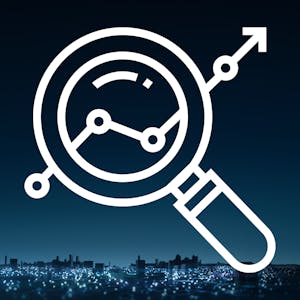Population Health Responsible Data Analysis
In most areas of health, data is being used to make important decisions. As a health population manager, you will have the opportunity to use data to answer interesting questions. In this course, we will discuss data analysis from a responsible perspective, which will help you to extract useful information from data and enlarge your knowledge about specific aspects of interest of the population. First, you will learn how to obtain, safely gather, clean and explore data. Then, we will discuss that because data are usually obtained from a sample of a limited number of individuals, statistical methods are needed to make claims about the whole population of interest. You will discover how statistical inference, hypothesis testing and regression techniques will help you to make the connection between samples and populations.
A final important aspect is interpreting and reporting. How can we transform information into knowledge? How can we separate trustworthy information from noise? In the last part of the course, we will cover the critical assessment of the results, and we will discuss challenges and dangers of data analysis in the era of big data and massive amounts of information.
In this course, we will emphasize the concepts and we will also teach you how to effectively perform your analysis using R. You do not need to install R on your computer to follow the course, you will be able to access R and all the example data sets within the Coursera environment.
This course will become part of the to-be-developed Leiden University master program Population Health Management. If you wish to find out more about this program see the last reading of this Course!
Knows (the value of) all aspects of data management and acknowledge the importance of initial data analysis.
Knows the pros and cons of statistical methods and can choose the appropriate data analysis approach in common health related problems.
Is able to interpret statistical results and to draw responsible conclusions.
Syllabus
Syllabus - What you will learn from this course
Week 1
Welcome to Responsible Data Analysis
From Individuals to Data
Week 2
From data to information I: statistical inference
Week 3
From data to information II: regression techniques
Week 4
From information to knowledge
FAQ
When will I have access to the lectures and assignments?
Access to lectures and assignments depends on your type of enrollment. If you take a course in audit mode, you will be able to see most course materials for free. To access graded assignments and to earn a Certificate, you will need to purchase the Certificate experience, during or after your audit. If you don't see the audit option:
What will I get if I purchase the Certificate?
When you purchase a Certificate you get access to all course materials, including graded assignments. Upon completing the course, your electronic Certificate will be added to your Accomplishments page - from there, you can print your Certificate or add it to your LinkedIn profile. If you only want to read and view the course content, you can audit the course for free.
Is financial aid available?
Yes. In select learning programs, you can apply for financial aid or a scholarship if you can’t afford the enrollment fee. If fin aid or scholarship is available for your learning program selection, you’ll find a link to apply on the description page.
Reviews
To research and review the data Population Health: Responsible Data Analysis is mostly perfect to me as a humanitarian.
It's good learning from Coursera . Those who could not able to purchase certificate.. atleast provide acknowledgement that's a request.
Had much fun during this course. Hope more programmes like this in future are offered for free.
